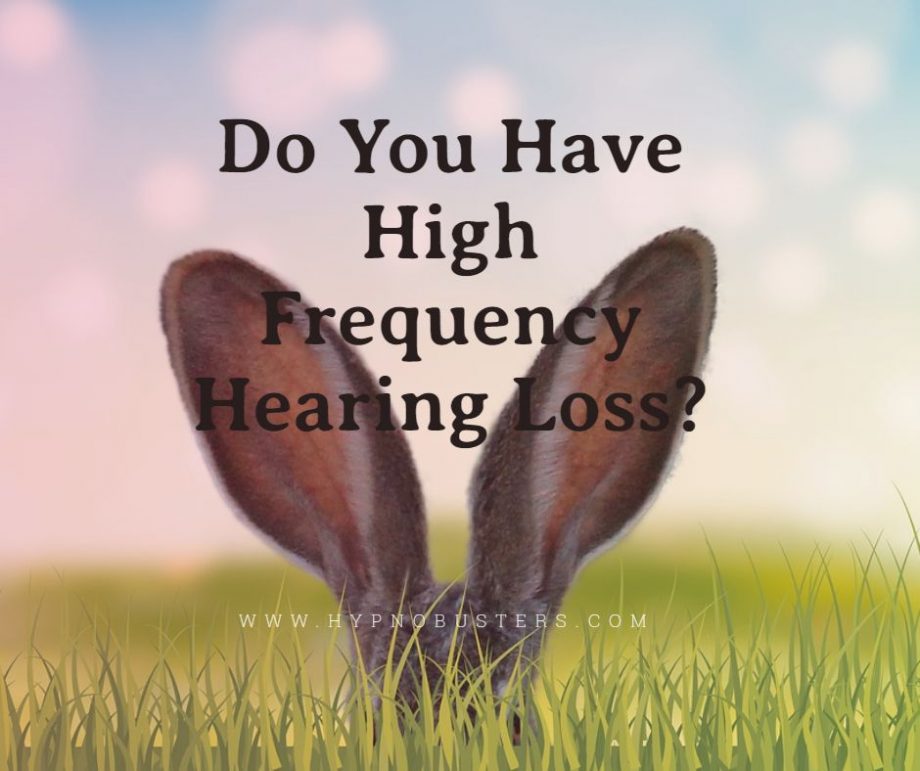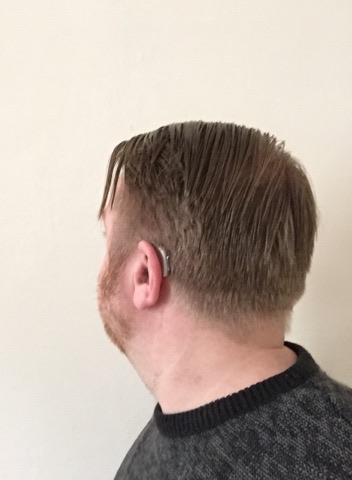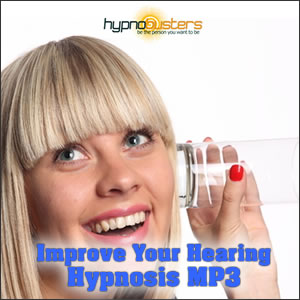
Do you struggle hearing conversations in noisy places? Does the murmur of a restaurant throw you off? Do you sometimes feel you can hear conversations, but can’t understand them?
If so then you could have high frequency hearing loss. (Also known as “high end hearing loss” and “top end hearing loss”). This is where you can’t hear frequencies in the higher pitched range.
People with high frequency hearing loss struggle with hearing clarity. This reduces their ability to hear speech, especially through background noises.
Often the person suffering from hearing loss is the last person to realise. That’s because hearing loss is usually gradual, and sufferers often feel their hearing is “normal”. However left untreated, the person may become isolated as they gradually avoid situations where they struggle to hear. This can be detrimental to their mental health.
Untreated hearing loss has also been shown to increase the chances of dementia, as the brain has less stimulation due to hearing less. Therefore it is vitally important you don’t ignore hearing issues.
If you know someone you suspect has hearing loss, please share this article with them, and encourage them to try the free hearing test bellow.
High frequency hearing loss usually affects people as they age. Everyone will experience a loss of hearing high pitches as they go through life. A teenager might be able to hear as high as 20khz. But an average 40 something year old might only be able to hear up to around 14khz. By old age this might have dropped further to around 8khz.
This is because the hairs in your ears that detect vibrations become damaged and destroyed over time. And they don’t really grow back. The hairs responsible for hearing high pitched sounds are usually the first to go. This happens to EVERYONE.
It is perfectly normal for you to not be able to hear as high, the older you get.
The hairs in your ears are usually destroyed in what is known as a domino effect. The ones responsible for hearing the highest pitched usually go first. Then the next highest and so on.
Why It’s Important To Be Aware Of High Frequency Hearing Loss
I feel it’s important for everyone to be aware of high frequency hearing loss.
First it is importation to be aware so that you might take measures to reduce high frequency hearing loss. Wear earplugs when at concerts and other noisy places for example. Avoid listening to loud music, especially through headphones.
It’s also important to be aware because top end hearing loss creeps up on you.
I have had top end hearing loss all my life. As a 12 year old I could only hear up to 13khz. This is the level a normally hearing middle aged person can hear at. So I didn’t get a good start on that front.
Over the years my hearing range has naturally dropped, like everyone’s does. In my 40’s, I can now only hear up to about 6khz. That is the hearing loss normally associated with someone in their 80’s.
Every one of us gradually loses our high pitch hearing as we age. But some don’t get a great head start (like me!). Others may lose their high frequency hearing faster due to genetics or being in loud environments for long periods of time.
Many people are lucky and find that their hearing doesn’t become a problem until much later in life. But not everyone is as lucky.
The reason I think it’s important to be aware of high frequency hearing loss is because it can be so difficult to recognise in yourself, and it can seriously impact on your quality of life and mental health.
High frequency hearing loss is so difficult to recognise because whatever you hear is your normal. Without being able to compare your hearing to what others hear, you have no idea if your hearing is worse or better than those around you. Your normal is your normal.
It is often other people that notice your hearing loss before you do. And many people spend years in denial before finally admitting to themselves that they have hearing issues.
Problems Caused By High Frequency Hearing Loss
With high frequency hearing loss you might be able to hear a car in the distance or a knock on the door as well as anyone. You might also be able to hear someone shout from afar.
What high frequency hearing loss does is impair the clarity of you hearing. This is because the consonants such as s,f, and h in speech are usually high in pitch.
This can cause you to get confused between words such as “face” and “faith”.
So whilst you hear talking, you might not necessarily know what they are talking about.
I know from personal experience that this can be confusing and disorientating. You may feel that you are hearing the conversation, but you don’t know why you are struggling to understand. This can stir up anxiety and social withdrawal.
Top end hearing loss can also lead to “concentration fatigue”. This is something I’ve only recently been aware of, and it explains a lot of things about how I have behaved in the past.
Concentration fatigue
When your ears struggle to hear the consonants such as s,f and h, your brain has to work hard to fill in the gaps. Your brain will take into account the context in order to work out whether someone said “he” or “she” for example.
This takes much more brain power than from someone with normal hearing. This can lead to concentration fatigue.
Your brain is doing so much more work than it ordinarily would. I have literally been in the situation where my brain is so fatigued from listening that when someone has spoken to me, I’ve just stared at them blankly not knowing what they have said. It wasn’t because I didn’t hear them. It was because my brain was so fatigued after listening for so long that it literally gave up being able to understand. My brain had “gone”!
This can be very confusing if you don’t know you have high frequency hearing loss. It can have you doubting your own intelligence when you’re the only person in the room struggling to comprehend.
You may also find yourself on catch up during conversations. Whilst your brain is deciphering what has been said, the conversation keeps going. It may take you a split second to realise what someone is talking about. And by the time you have realised what they said, they have already said another sentence. And because you weren’t fully concentrating on that new sentence, you become lost. All the while they are racing to the next sentence, and the next. This happens more so when listening to fast talkers.
This all leads to stressful situations where you can hear someone is talking, but not really know what they’re talking about. Yet you feel that you should be able to understand. And you begin to feel more fatigued and more stressed. This is not great for your mental health.
You may also become annoyed and frustrated with people “mumbling”.
But if you are aware of having top end hearing loss, then you can take some measures.
Hearing Aids
Hearing aids can help you. I started wearing them at age 40. Modern hearing aids are much smaller and discrete than ever. And they are more effect than they used to be.
Old style hearing aids would boost the volume of all sounds. This can help some hearing problems, but not high frequency hearing loss. Because ALL sounds are boosted, this does not improve the clarity. The base and middle tones will also be boosted, and will still drown out the higher pitches.
My audiologist told me that my hearing was normal for my age in the bass and middle regions. It was just the high pitches in my hearing that drastically cut off.
Modern digital hearing aids are set up to boost the parts in your hearing that need boosting. An audiologist will test what you can and can’t hear. The hearing aids are then set up individually to boost only what YOU need boosting. This helps improve clarity. Whilst they don’t return your hearing to “normal”, they do help.
My hearing aids are set up only to boost the high frequencies. This reduces my better-heard bass and middle ranges from drowning out the high pitches.

Coping Strategies
Being aware you have high end hearing loss can have other benefits too.
Now you know about concentration fatigue, you can plan accordingly. If you have an important meeting coming up, then you might want to rest your ears for an hour or two before. That way you’re fresh at the beginning.
If you ever feel your getting concentration fatigue, then you can remove yourself from the noise and go somewhere quiet to recharge your brain power. Once you feel rested, you can return to the situation. By being aware of your concentration levels, you can better manage them.
Meditation is a great way to clear your mind. Meditating before and/or after being in noisy environments can really help reduce fatigue, stress and anxiety.
You can also ask people to slow down or repeat themselves. Now that you understand why it is you’re lost during conversations, you can get into the habit of letting people know. And in return they get in the habit of talking a little slower and clearer for you.
Final Thoughts
So if you have difficulty hearing conversations in noisy places, then you could have high frequency hearing loss. For the sake of your sanity, and those around you, visit a doctor or audiologist to get your hearing checked. The longer you leave it the more frustration you and your significant others may face.
Whilst high frequency hearing loss cannot currently be cured, you can help yourself. By wearing hearing aids and learning how to get the most out of your hearing and concentration levels, you can make the most of your life.
Many people with high frequency hearing loss avoid going to public places. This avoidance can eventually lead to isolation if taken too far. This is obviously not good for your mental well-being.
You will have your frustrations, but you can minimise these the more you learn about yourself and your hearing. So if you suspect you have high frequency hearing loss, get your ears checked out as soon as possible!

Whilst hypnotherapy can’t cure high frequency hearing loss, it can help by improving your brain-ear connection. Please CLICK HERE to check out my Improve Your Hearing Hypnosis MP3
